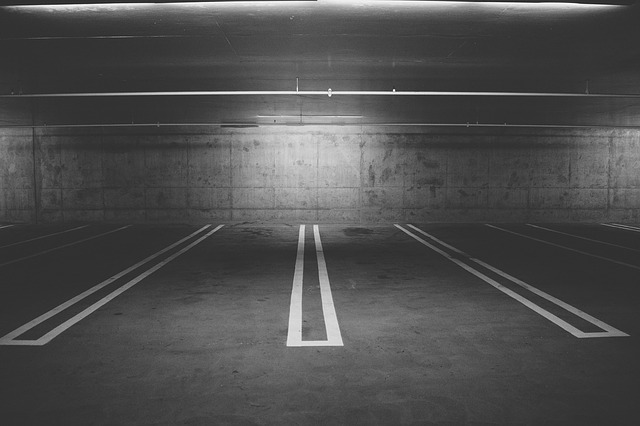Photo: Do not neglect the condition of the common areas. Their repairs can be the biggest cost to the strata that is passed on to the individual unitholders. Underground parking garages are notorious for water damage to the concrete walls and ceiling… which are costly to repair.
Abstract: We present a condo buyer’s home inspection checklist, for the dedicated ‘do it yourselfer’. Some of the most common issues are identified. If you feel stressed about doing it yourself, it may be worth the peace-of-mind hiring one of EKAN’s experienced condo inspectors.
What’s the Risk?
With the hot seller’s market on the North Shore and Sunshine Coast, here’s a fairly common question from buyers… “Do I really need a condo inspection? ” After all, the interior square footage is much smaller than a conventional house and the exterior and common areas are maintained by a manager. You have the strata council meeting minutes for disclosure and a contingency fund for repairs. So how much of a risk is there by not having a home inspection?
Self-Managed vs Property Manager
Let’s look at the issues around a condo’s day-to-day management and then you can decide for yourself. Condos are either self-managed or hire a property management company. A self-managed building is most typical of small developments. For example, a three story walk-up with 4 apartments per floor may be a good match to the capabilities of the owners. Even some high rises are self-managed. One of the advantages of being self-managed is that monthly condo fees are considerably lower since you are not paying a third party to maintain and operate the building. The disadvantages of self-management are that the owners may choose to ignore, not discuss or postpone needed repairs or upgrades. Alternatively, the volunteer council may not have the skill set to address or even recognize a particular issue.
On the other hand, a property management company has a portfolio of properties with experienced managers who follow a methodology which includes forward planning. The downside of this third party management comes with cost, which is reflected in increased monthly condo fees.
So the type of condo management will very much influence what you read in the condo council minutes, the AGM minutes, the operating budget, the size and adequacy of the contingency fund and how the depreciation report (if any) is applied or ignored.
Scope of Inspection
A home inspector will do a thorough exterior and interior review. Here are some of the issues that will be checked.
Common Areas
- Electrical room, service size and adequacy
- Mechanical room, condition of heating plant and hot water systems
- Storage room, moisture and water issues
- Underground parking, look at state of foundation, floor and ceiling
Exterior
- Leaking condo syndrome, is it one of those buildings that is susceptible to it or it been rehabilitated
- Roof, what’s the age and condition
- Wood siding, is there rot or damage
- Windows, is the flashing and sealing working
- Brick facade, condition of the mortar or failing
- Landscaping and vegetation, do mature plant roots or slope indicate a potential problem
- Sidewalks and stairs, are repairs required or safety concerns
- Driveway, does it need to be patched or resurfaced
Interior
- Electrical, is the wiring obsolete, inadequate or unsafe
- Water damage, do the walls, ceiling and floors show signs of water damage and what’s the cause
- Plumbing, are the kitchen & bathroom services adequate
- Ventilation, are the fresh air makeup and exhaust fans operational
- Interior & exterior doors, are there any performance, safety or security issues
- Wood or gas fireplace, any issues
- Windows, moisture and safety issues
- Hot water tank issues
- Kitchen & bathroom, structural integrity of counters and cabinets
- Balcony, review for drainage, slope, rot, handrails, security
- Safety devices, check for GFCIs, AFCIs, smoke alarms, heat detectors, sprinklers
- Structural anomalies, look for uneven surfaces, slope, cracks
- Utility disconnects and shut-offs, are they all there and locate them for the buyer
Cautions
The buyer can perform their own condo inspection checklist or hire a professional. The important issue is that it is done so that you know what you are purchasing. Remember that as a condo owner, you are responsible for your share of the exterior and common area expenses related to repairs, renovations and upgrades. A low purchase price or low monthly condo fee may factor-in a significant future expenditure that may not be adequately covered by the contingency fund. Be sure to read several years of the condo board meeting minutes to gain an understanding of the important issues.

